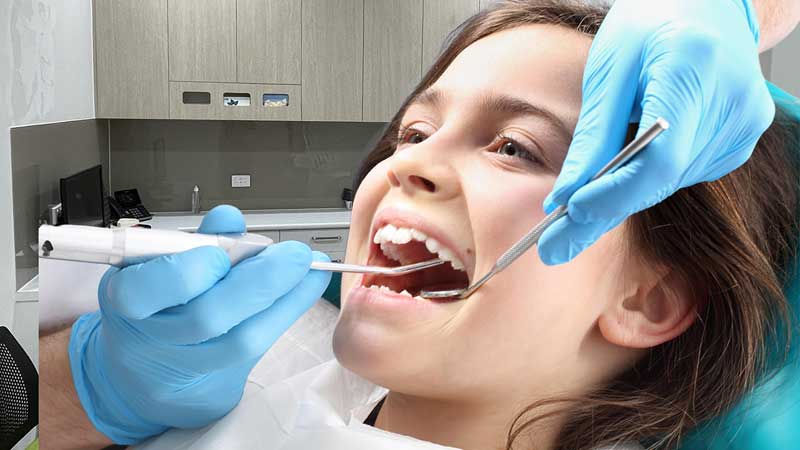Healthy Gums, Happy Smile: Top Tips to Keep Your Gums in Great Shape
- atlanticdentalprac
- Nov 7, 2024
- 3 min read

When it comes to oral health, many people focus on their teeth and forget about the important tissue that supports them—your gums! Healthy gums are essential for a strong, beautiful smile and are also key to your overall health. Let’s look at some simple yet effective practices that can keep your gums in top condition!
1. Master the Art of Brushing 🪥
Brushing may seem basic, but a lot of us are doing it wrong without even knowing! Proper brushing technique can make all the difference in keeping your gums healthy.
Use a Soft-Bristled Brush: Hard bristles can irritate your gums. Choose a soft-bristled toothbrush to gently remove plaque without causing damage.
Brush at a 45-Degree Angle: Position the brush at a slight angle toward your gums and make small, circular motions. This helps target the gum line, where plaque tends to accumulate.
Two Minutes, Twice a Day: Aim for two minutes, twice daily. Spend about 30 seconds on each quadrant of your mouth for a thorough clean.
2. Don’t Skip the Floss! 🧵
Flossing is a must if you want to keep your gums healthy. It removes plaque and food particles from between teeth where your toothbrush can’t reach.
Floss Daily: Make it a daily habit, even if it’s tempting to skip. It doesn't take long but makes a big impact on gum health.
Gentle Technique: Avoid snapping the floss down on your gums. Instead, glide it gently and follow the curve of each tooth to reach the gum line.
Try Alternatives if Needed: If you find traditional floss tricky, try interdental brushes, which are also effective.
3. Use an Antibacterial Mouthwash 🦠
Mouthwash isn’t just for fresh breath! Antibacterial rinses can reduce plaque and prevent gum disease. Look for one that’s designed for gum health, as these typically contain ingredients like chlorhexidine that help reduce bacteria.
4. Eat for Your Gums 🍎
Your diet can significantly impact your gum health. Some foods promote strong, healthy gums, while others can increase the risk of gum disease.
Foods for Gum Health: Choose crunchy fruits and vegetables like apples, carrots, and celery, which help stimulate gums and naturally clean teeth. Leafy greens and dairy are also excellent for providing essential nutrients like calcium and vitamin C.
Limit Sugary and Acidic Foods: Sugars feed the bacteria that cause gum disease, and acidic foods can erode gum tissue over time. Try to limit sugary snacks and acidic beverages like soda and citrus juices.
5. Avoid Tobacco Products 🚬
Smoking and chewing tobacco are some of the worst offenders when it comes to gum health. Tobacco irritates the gums, weakens the immune system, and slows down the healing process. It also increases the risk of gum disease and even oral cancer.
Quitting Benefits Your Gums Quickly: If you quit smoking, you’ll start seeing improvements in gum health relatively soon. Your gums will become less inflamed, and healing times will improve.
Seek Support if Needed: Quitting tobacco isn’t easy, so look into resources like support groups, nicotine patches, or a chat with your healthcare provider to help you through the process.
6. Stay Hydrated 💧
Water is one of the simplest tools for gum health. Staying hydrated keeps your mouth moist, which helps wash away food particles and bacteria, and aids in saliva production, your body’s natural defense against plaque buildup.
Rinse After Meals: Even if you can’t brush after a meal, a quick rinse with water can help wash away food particles and sugar that might otherwise cling to your gums.
7. See a Dentist Regularly 🦷
Regular dental visits are essential for maintaining healthy gums. Professional cleanings remove tartar (hardened plaque), which can lead to gum inflammation and gum disease if not addressed.
Biannual Cleanings: Aim to see your dentist twice a year for cleanings and check-ups. Those with a history of gum issues may benefit from more frequent visits.
Discuss Concerns Early: If you notice symptoms like bleeding gums, gum soreness, or bad breath that won’t go away, bring it up with a dentist right away. Early treatment can make all the difference in managing gum issues.
8. Be Aware of the Signs of Gum Disease 🚩
Knowing what to look for can help you catch gum issues before they escalate. Common signs of gum disease include:
Red, swollen, or tender gums
Bleeding when brushing or flossing
Persistent bad breath
Receding gums or loose teeth
If you notice any of these signs, see a dentist. The sooner gum disease is detected, the easier it is to treat.
Get expert advice
If you’re concerned about your dental health, Hampton Dental Care are your go-to private dentists for guidance on how to maintain healthy teeth and gums. Contact us today to arrange your next check-up or book online 24 hours a day.



Comments